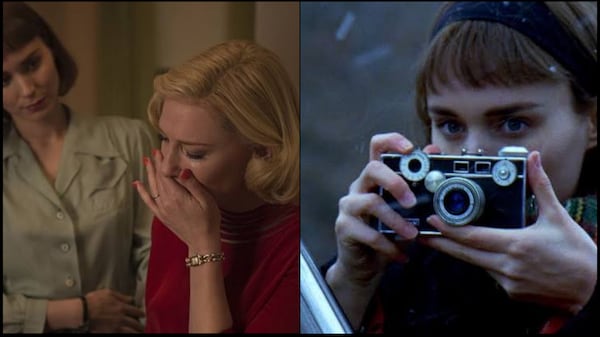Holiday Streams: How Carol is a lesson in valuing authenticity above everything else
The Todd Haynes directorial is inspired by Patricia Highsmith’s 1952 novel The Price of Salt. The film stars Cate Blanchett and Rooney Mara in lead roles.

Last Updated: 05.39 PM, Dec 16, 2021
Carol is a film that stays with you long after you finish watching it, whether you want it to or not. Other than the fact that some of the events in the film takes place over the course of Christmas and New Year’s, the film in no way shares any of the holiday gaiety (pun unintended) that is commonly found in holiday themed love stories. But the moving film, raw and unapologetic in the way it chose to tell its story, offers some important life lessons everyone needs to hear, no matter the season.
The story is simple enough; set in the 1950s, Carol tells the story of a young woman, Therese Belivet (Rooney Mara), who befriends and then falls in love with an older woman, the rich and sophisticated Carol (Cate Blanchett). However, beneath Carol’s airy demeanour is her grief from a brutal custody battle of her daughter with her ex-husband.
Watching the movie again, I was reminded of Paula Stone Williams’ quote "The call to authenticity has all the subtlety of a smoke alarm” – a sentiment that echoes throughout the movie. She faces a turmoil that queer people often face at some point in their lives, when they find themselves surrounded by people whose narrow-mindedness cannot fathom the full expanse of their identities. Carol is given two choices – she can either “choose” to live her life as a queer woman and lose her daughter forever, or she can “choose” to undergo conversion therapy to “cure” her homosexuality.
I underline the word “choose” for the irony in it; altering a part of who she is fundamentally as a person, even for the sake of a loved one, is no fair choice for anyone. But alas, that’s what our titular protagonist is faced with, mirroring an almost universal queer experience.
Carol’s attempts at stifling her identity and presenting an appearance of a ‘proper mother and wife’ as she swallows her true feelings are hard to watch. The short moments she is allowed to spend with her daughter seem to be the only moments in her life that she looks forward to, but even they fall short when she returns to an empty home.The only source of comfort in these trying times is her best friend, who is also queer, and to whom she reveals her pining for Therese and her regret at not having told the latter to wait for her.
But in the end (Spoiler alert), Carol decides to give in to the incessant smoke alarm, even though she knows the cost of it. She makes the decision to relinquish custody of her daughter to her husband, being satisfied with just visiting rights. Her monologue during the pivotal scene, voice choked with raw emotion, is something everyone, no matter your identity, should take heed from. She poses the question to the men around her, what use is she to her daughter if she (Carol) made the choice to live against her own grain.
Undoubtedly it is a sacrifice no mother should ever have to make, and the sting of her choice is something she has to live with for the rest of her life. But in spite of it all, and I’m sure this might be an unpopular opinion, it was the right one to make, not only for herself but for her daughter as well. Not giving into her husband’s bullying, and handling all the problems thrown her way in such a graceful way, hints that her daughter will grow up with one of the best role models anyone could ever ask for. And who knows, as Carol herself says, maybe things will come full circle one day.
Carol is streaming on Amazon Prime Video.

 Premium
Premium